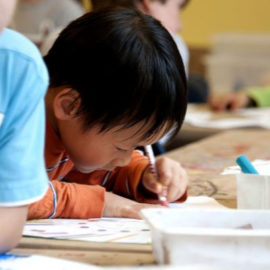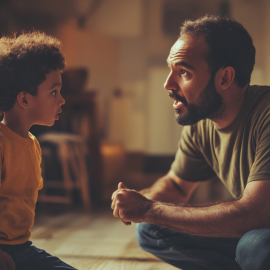

This article is an excerpt from the Shortform book guide to "The Light We Carry" by Michelle Obama. Shortform has the world's best summaries and analyses of books you should be reading.
Like this article? Sign up for a free trial here.
Why is minority representation important? How does poor representation stop people from being true to themselves and prevent them from going after their dreams?
Lack of representation leaves people feeling self-conscious and demoralized. As a result, they try to change their behavior to fit others’ expectations and don’t pursue their goals because they lack relatable examples of success.
Here’s how a lack of representation hurts minorities.
The Consequences of a Poor Representation
Minorities often struggle to find role models since most industries are dominated by the majority. This lack of role models makes minorities feel isolated and powerless: They have trouble believing they could complete an ambitious goal in their field because they lack examples of how to do so. This disbelief makes it harder for them to challenge themselves and nurture their personhood.
| Why Representation Matters Representation helps minorities believe that they can achieve their goals because humans can more easily identify with people who are similar to them. This may be an effect of people’s tendency to categorize themselves and other people. While this tendency traditionally causes people to glorify their own group and treat other groups poorly, its greater function is to mold people’s sense of identity. People attach their identity to their group and consider their own abilities and opportunities in the context of their group members’ experiences. Thus, a minority seeing a member of their group in an area traditionally dominated by the majority tells people that this kind of success can be part of their identity too, rather than solely belonging to a different group. |
Often, a lack of representation makes minorities either give up their goals or suppress parts of their personhood to emulate someone very different from themselves. For example, if Emma loves science but she’s never learned about important female scientists, she might feel discouraged. She might believe that only men can be scientists. This might make Emma give up on science, or she might believe she has to act like a man to be successful. Thus, Emma becomes self-conscious, either abandoning her interest in science or suppressing her more feminine traits to fit the standards she’s been exposed to.
| How Minorities Can Meet Their Goals While Staying True to Themselves This phenomenon may occur because of a conflict between people’s identity and actions. In Awaken the Giant Within, Tony Robbins says your sense of identity dictates your behavior and vice versa. Without role models, a minority may exclude certain actions from their identity—they believe they can’t do something because they’ve never seen a minority do it. This creates a conflict in their identity: They want to do something, but they believe their identity doesn’t let them. To resolve this conflict, they either abandon the action—giving up their goals—or change their identity to fit the action—suppressing the parts of their identity that contradict the action. Instead, they should expand their sense of identity to meet their goals without losing part of themselves. |

———End of Preview———
Like what you just read? Read the rest of the world's best book summary and analysis of Michelle Obama's "The Light We Carry" at Shortform.
Here's what you'll find in our full The Light We Carry summary:
- Michelle Obama's advice on fulfilling your potential in life
- The benefits of nurturing and sharing your unique abilities and strengths
- How to overcome the obstacles to reaching your potential and creating change






